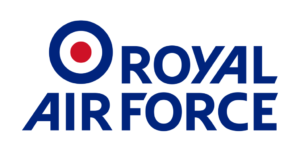
How To Become A Transport Manager
This next-level mostly office-based job sees you using customer service skills and a sharp eye for detail to make sure all customer journeys are safe, efficient and smooth.
Transport Manager Careers: What’s Involved
About Transport Manager Careers
Similar jobs: Passenger transport manager, customer service manager, operations manager
As a transport manager, you are at the forefront of the passenger’s needs for their journey. This is a role for someone who isn’t afraid of responsibility and uses their initiative to (literally) get things moving.
There are so many ways for us to get from A to B, from the underground to buses, trams and riverboats. But have you ever wondered who makes sure that transport is there for us (and millions of other people) each day? You’d be forgiven if you hadn’t but there’s a role called a transport manager behind it all, like the wizard behind the curtain.
As a transport manager it’s your job to plan and manage all forms of passenger transport including trains, trams, airplanes, ferries, ships and buses.
What Does A Transport Manager Do?
It’s your mission to make sure the transport meets performance and safety targets. You’ll do the research and pass on your findings to senior management, along with other reports and recommendations you may have. You will advise on policies, making sure the outcome is in the best interest of your passengers’ safety and in line with UK health and safety laws and regulations. You will line-manage staff, and coordinate rotas and training.
You must ensure that customers are heard! That could mean implementing suggestions being made by the passengers or dealing with complaints being made about the company, or journey, to give a few examples.
Being a transport manager allows you to work in both the public or the private sector. Public sector perks can include Flexitime, Pension schemes, and Health insurance. Private sector perks can include Company pension, and Reduced-cost travel with the company.
How Much Money Can You Earn As a Transport Manager?
These LMI Job Trends give you a sneak peek of how much you could earn starting out for this career, and how much your salary could grow with experience.
Average salary for transport manager jobs
Recent labour market information says you can earn on average between £18,000 and £42,000 a year as a transport manager in the UK.
Starting salaries are quite broad in this career and can range from £18,000 through to £24,000.
With a few more years of experience this can then increase up to £35,000.
When you reach senior transport manager level you could be earning up to £42,000 a year.
Your starting salary can vary because of factors like level of experience, training, or location. Your salary as a transport manager will increase over time as you build skills, knowledge and experience.
Skills You Need To Become A Transport Manager
Useful skills to put in your CV for transport manager jobs:
- Good project management skills, with a knack for being able to lead and motivate others
- Willingness to learn, develop and grow
- Great social skills and communication skills
- Good teamwork skills and positive attitude to help people get motivated about their work
- Good eye for details – it’s all part of self-management skills, which will help you manage others!
- Strong IT skills
- Strong business and finance skills, because money plays a part in creating a great customer experience within budget.
How do you get these skills?
Vocational qualifications and work experience will help you build these skills over time.
Build Your Skills With the FREE Young Professional Programme
What Qualifications & Training Do You Need For Transport Management Careers?
School, College And Training
If you want to become a transport manager, it isn’t essential to have a degree – employers in this sector value lived experience. However, you may need to start off at a lower level and work your way up from there.
If you aim for at least five GCSEs or their equivalent in grades 9-4 including English and maths, you can apply to become a transport clerk, and work your way up.
Apprenticeships
Apprenticeship schemes are another way into a logistics career. An apprenticeship scheme is a great tried-and-tested way into a supply chain career that can take you places. With a logistics apprenticeship you’ll get training and real-life experience while getting paid for it.
When you’re ready for leadership and management responsibilities, you can be eased into them gradually in a way that fits your knowledge and experience.
Your employer of choice may be advertising apprenticeships on their career websites, or it’s always worth checking the Find An Apprenticeship website.
Degrees And The University Route
If you decide that you want to go to university to help you on your way to becoming a successful transport manager, there are several degree subjects you could take.
Areas of interest would be:
- logistics
- supply chain management
- transport management
- business management
You would need 1 or 2 A levels, or equivalent, for a foundation degree or higher national diploma. You would need 2 to 3 A levels, or equivalent, for a degree. Finally, you could get a postgraduate degree in a relevant subject.
There are graduate transport management schemes available, and many big providers of passenger transport welcome graduates from a wide range of subjects. This is great news for graduates, because it means your degree choice doesn’t need to hold you back from a transport management career.
Transport Manager Career Path And Progression
If you start off as a trainee transport planner with a degree, or a trainee transport planning apprenticeship, you can then move onto transport management.
What Work Experience Do You Need For Transport Manager Jobs?
Work Experience Tips
Having work experience in a customer-facing or customer-related environment would be ideal. It doesn’t have to be in transport – it could be in retail, too! You need to show your potential employer that you are great with people and can understand their needs. This will help you demonstrate that you can identify what passengers will need on various forms of transport.
Chances are, you’ll eventually be working for one of the following types of transport company:
- Bus and coach companies
- Airlines and airports
- Ferry and cruise operators
- Tram operators
- Travel and tourist companies
- Tube and metro train companies.
Getting Experience
Why not put in the research now? Get in touch with a potential employer via their early careers website or LinkedIn. Show them that you’re proactively looking for work experience and see if you can shadow someone, if not a team. This will help you pick up valuable skills you can apply within your career.
Examples of relevant work experience include:
- Work shadowing (even if it’s just for a day)
- Work placements in a company
- Work placements on a degree course
How To Find Transport Jobs: Next Steps
To find jobs for young people in this role, search on job boards for transport-related roles with these words in the title:
- Transport Traineeships
- Supply Chain Apprenticeships
- Logistics Apprenticeships
- Business Management Apprenticeships
- Supply Chain Management Graduate Schemes
- Graduate Transport Manager Jobs
These Youth Friendly Employers offer great opportunities
These Youth-Friendly Employers might be able to help you get great transport jobs, training or experience! Take a look.

























Logistics Career Tips & Opportunities
Transport and Logistics Career Guides
View job descriptions with average UK salary, useful qualifications and a variety of routes into this career.
Resources And Links
YES! I Want More Free Careers Help...
So what are you waiting for? Grab your future.





























